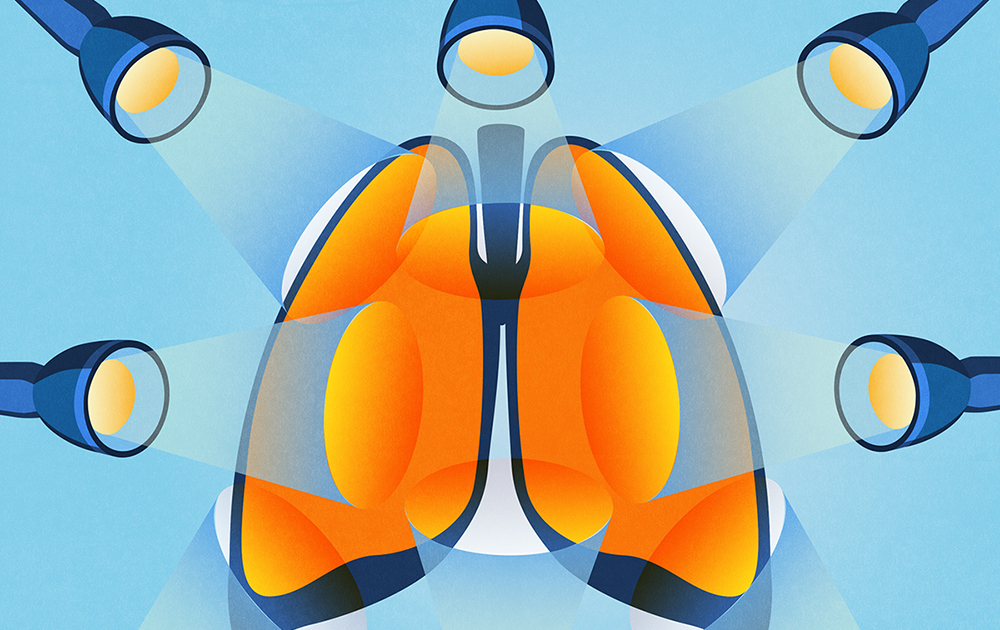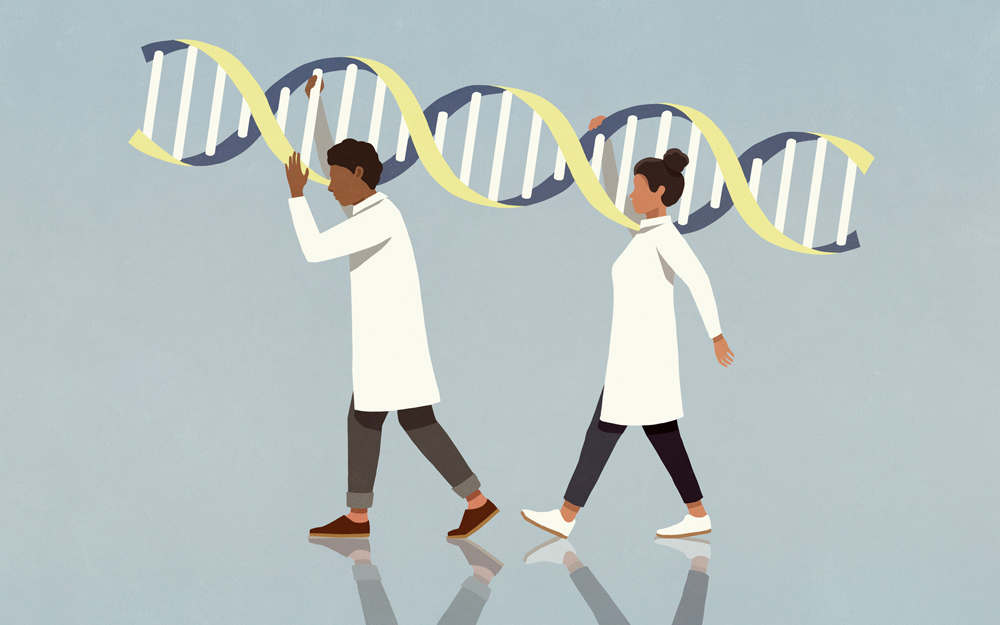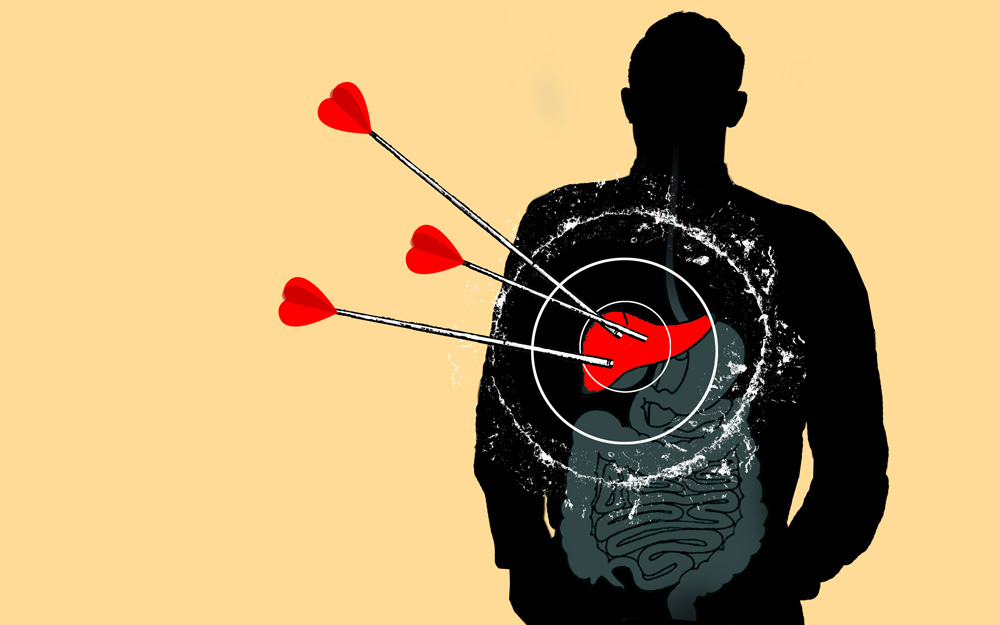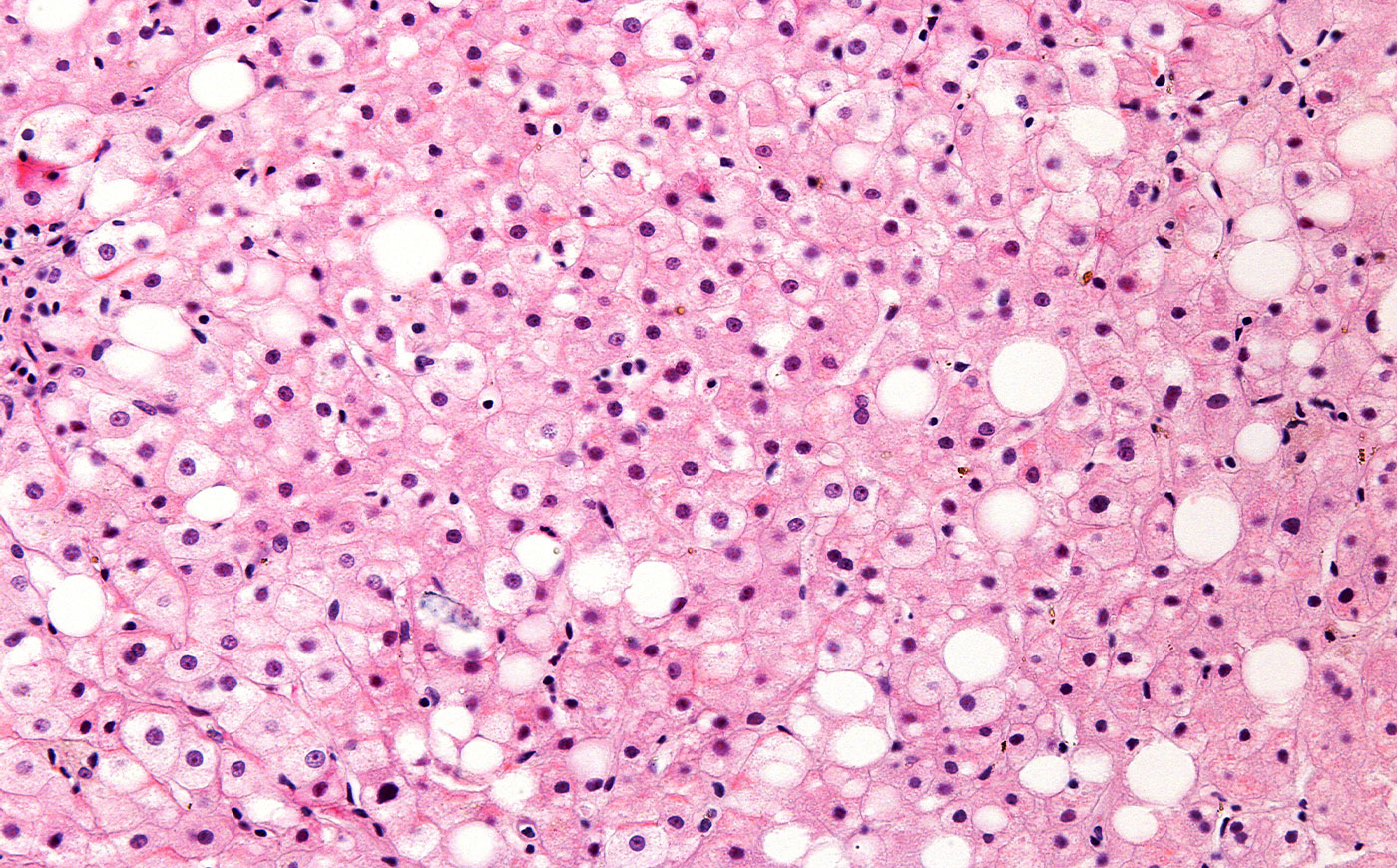Researcher Has Fascination with the Unseen in Cancer
Date
February 11, 2021
Credits

Date
February 11, 2021
Credits
Medical providers featured in this article
In Brief
{{cta-block}}
PhD student’s research career began with big questions about tiny particles.
Blandine Victor's fascination with understanding what her eyes cannot see started when she was in elementary school.
Her parents grew up in Haiti and told her stories about their families' lives in the Caribbean: babies born healthy who then died within days; loved ones ravaged by disease. Victor started asking big questions about the little things: How could actions she took for granted in her home, like washing her hands, be a matter of life and death somewhere else? How does a cold lead to death?
"Things we technically cannot see can end our lives so quickly," says Victor, a fourth-year student in Cedars-Sinai's PhD program. "Learning about how some of my family suffered illness and death that could have been prevented made me want to understand more. How do these microscopic things wreak havoc on the body?"
The quest for answers led her to a career in medical research, but Victor's real passion is improving people's lives, especially those who grew up in communities like her own in West Palm Beach or her parents' in Haiti.
She began studying infectious diseases at Emory University, where she worked on trials for an HIV vaccine. Then while earning her master's degree at the University of Pittsburgh, she turned her attention to public health to better understand the human cost of disease. When it came time to pursue a doctorate, an ordinary classroom program wouldn't do.
"I need biomedical science and translational medicine to be working together. That's why I came to Cedars-Sinai," Victor says.
She is one of four graduate students in Cedars-Sinai's doctorate program whose stipends and expenses are covered in part by a yearly Institutional Training Grant from the National Institutes of Health. Cedars-Sinai was first awarded the prestigious grant in 2017, when the program wasn't even a decade old.
"These grants are peer-reviewed at the national level," says William Parks, PhD—associate dean of Graduate Research Education and director of the Graduate Program in Biomedical and Translational Sciences—who wrote the successful grant proposal. "In addition to helping our students, being awarded this very competitive grant provides Cedars-Sinai with positive national exposure and recognition of our educational programs."
At Cedars-Sinai, the challenge of solving the mysteries of cancer metastases captured Victor's attention. "I came into it as a baby bird," she says. "I knew nothing at all."
Like a hungry nestling, Victor voraciously devours white papers, textbooks and scholarly articles. She consumes them like her friends might binge a Netflix series. One of the first things she learned in her cancer catch-up: Prostate cancer disproportionately affects Blacks. Black men are 50% more likely to develop prostate cancer and are twice as likely to die of the disease compared to their peers of other ethnicities.
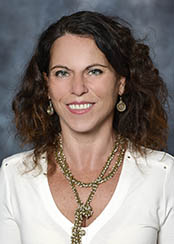
Victor is currently investigating how aggressive forms of prostate cancer spread to the bones. Specifically, she's studying tumor-derived extracellular vesicles. These tiny particles generated by tumor cells act as carriers transmitting information that alters neighboring cells to make the body more hospitable to cancer.
Dolores Di Vizio, MD, PhD, professor of Surgery, Biomedical Sciences, and Pathology and Laboratory Medicine, says Victor's project fits in well in her lab, which is doing novel work with extracellular vesicles and their role in cancer.
"Blandine's study of cancer is happening at an exciting time in our lab," Di Vizio says. "Her work has incredible potential to shed light on why cancer cells are resistant to immune therapy."
Victor feels strongly that science, understanding the unseen, must be grounded in making tangible differences—one reason she feels strongly about working toward addressing health disparities. The summer before she started her doctorate work, she collaborated with friends and family members on a two-day forum at a church in West Palm Beach, Florida. They invited 50 local youth to learn about education opportunities, interactions with police, and careers in research, science and medicine.
Looking ahead, Victor hopes to translate her public health policy study and her understanding of basic science into a career that will help communities like her hometown.
"This isn't just about me. This is about more people than I could ever dream of," she says. "I'm humbled to have this opportunity, so I have to do 12-hour stretches in the lab because it's greater than me. Science isn't about recognition. It's about really doing something that can help better people's lives."

